The Convention Peoples Party (CPP) 2016 Presidential candidate, Ivor Kobina Green Street has lauded government’s commitment to implement the much touted “Free SHS” program in September but wants it extended to cover university education.
According to him, prudent use of the nation’s natural resources is the surest way to fund free university education.
“University education would guarantee the nation Quality citizenship and workforce, a responsible and knowledgeable populace and accountable and sensitive governments.”
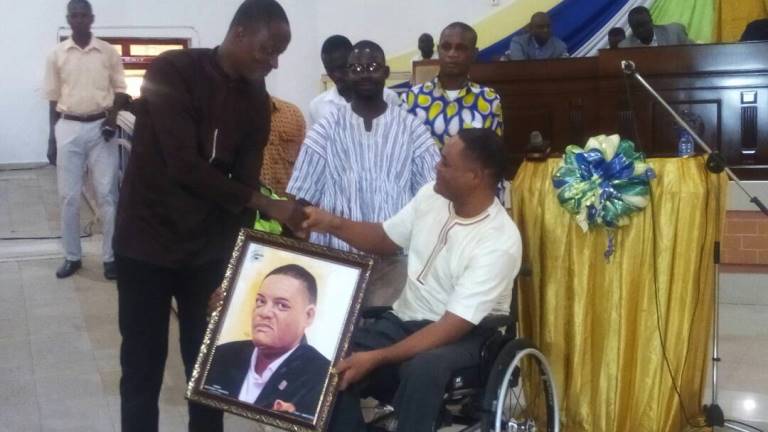
“In the knowledge based world in which we now exist, education is so important and is directly linked to the economic development and the stability and progress of a nation. We cannot have a nation of a few literates and vast numbers of illiterates and we must ensure that everyone has the opportunity to explore their talents to the fullest.”
Lawyer Ivor Green Street made the proposal at the 17th Annual delegates’ conference of the University Students Association of Ghana, at the University for Development Studies (UDS) Tamale City campus, Dungu.
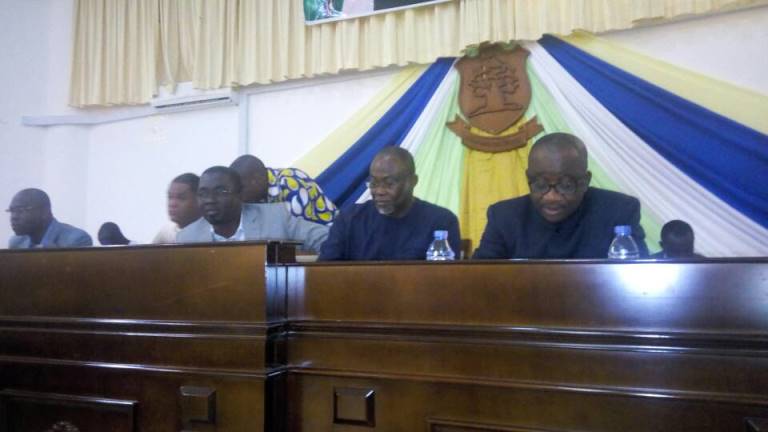
Economic independence
He tasked government to re-renegotiate all incentives to international companies and also end tax breaks to multinationals.
This in Ivor Green Street’s anticipation could lead to the nation’s attainment of the much awaited economic independence.
“I call on President Akufo-Addo to renegotiate all agreements with companies that offer incentives that do not inure to the benefit of the people of Ghana and end or significantly reduce tax holidays and tax breaks we give mining, oil, free zone and other multinational companies.”
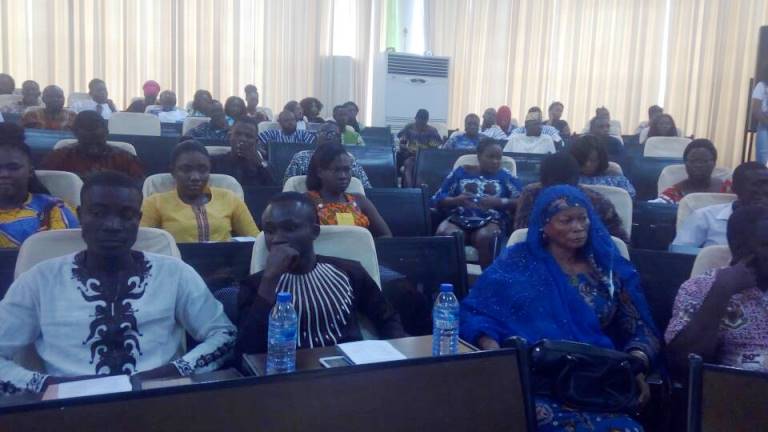
“Attracting investment policies of the NPP and NDC which had been exactly the same for year after year had been to offer tax incentives to attract foreign direct investment. No real gains have been achieved from this policy. Instead our trade taxes have declined.”
“Studies have shown that Ghana loses more than $ 1.5 billion annually as a result of tax incentives. That is over half the entire Government of Ghana budget for education,” he lamented.
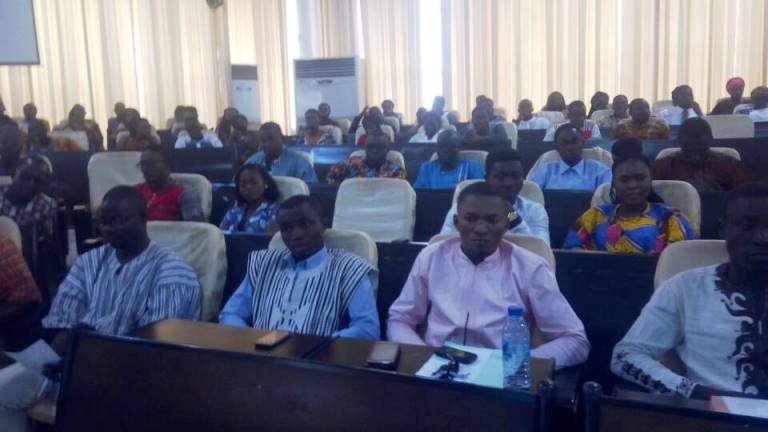
Below is the full statement:
EXPLORING ALTERNATIVE AVENUES TO FUND UNIVERSITY EDUCATION: THE ROLE OF STAKEHOLDERS
It is a great pleasure to be here today at the University of Development Studies to be part of the Annual Delegates Conference for USAG to offer some thoughts on the important matter of funding University education. Of course, different factors, including your environment and acquired ideas can end up determining your basic views on important matters like education.
As the son of not one but two University Professors of the University of Ghana at Legon, Accra I could be described as a campus baby having been born there and spent my childhood years surrounded by all things to do with education.
Education in general therefore, has a special place in my heart and especially University Education in particular. As you can imagine, we as children grew up with academics arguing with each other incessantly and never agreeing. In the same way, the arguments about the ways to fund education in general and university education in particular never seem to end.
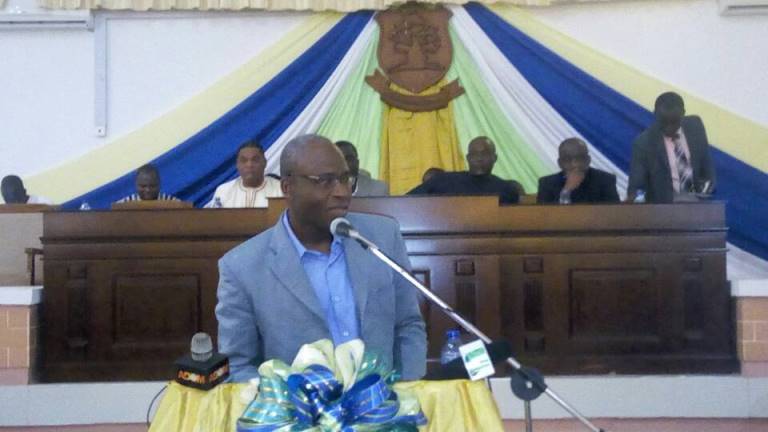
If you didn’t know I was a campus boy with a special affinity for education matters I know that all of you are intellectuals and also have highly developed political antennae and may therefore have noticed that last year 2016, the election year, I had the great privilege and honor to represent the Convention People’s Party, the Party of Osagyefo Dr. Kwame Nkrumah whom I know you all know and also accept to be the founder of Ghana.
He also had a special place for education in the formulation of a larger vision for the people of Ghana. That is why there is so much evidence that as we took our first steps into nationhood there was a total commitment from the seat of Government to the design of an African-centered National Education Policy as part of the creation of a modern, socialist, pan African state.
The topic before me today though, is what are the alternative avenues to funding University education. Firstly, let me state some very brief but important historical facts:
As far back as the middle to the late 1950s the CPP Government under its 5-year development plan started an ambitious educational program through massive investment in educational infrastructure and assistance to private and missionary owned and ran schools. It also made tuition in all schools free and books were also free. The cost of education was only the cost of boarding and lodging and this was made free for all students in Northern Ghana. Sixth form was made free for all students who gained admission after O’levels. So let’s ask ourselves this question: who introduced fees payment since 1966 to date when now University which was free is so expensive that most people cannot afford it? The history of fees payments can be directly traced to both the NPP and the NDC.
So it is clear, we believe and have always believed that Education should be free from the Kindergarten level to the basic level, to the secondary level and up to the tertiary level.
Yes, we believe, University education should be free and today I shall explain why we believe education including University education should be free and one of the avenues which could be used to pay for it.
That avenue which I will speak about today is for Government to simply have the political will to re-negotiate and end or significantly reduce tax holidays and tax breaks we give mining, oil, free zone and other multinational companies thereby freeing up resources to ensure free access to education and greater investment in the sector as well as making resources available for other critical social sectors.
It is that simple. It is the tax methods of some multinational companies and the failure of NDC and NPP over all these years to ever face them squarely. That is one of the contributory factors to the alarming and ever increasing gap between the rich and the poor. Successive NDC and NPP governments have continued to give incentives to companies who also repatriate their profits out of the country without paying taxes. Meanwhile, we the ordinary Ghanaians are forced to pay indirect taxes which pay for the roads, communication and other public infrastructure that these same multinationals use for free and which same multinationals also dodge tax in addition.
So, why should education be free? The answer is obvious and simple. It is one of the critical policies that would guarantee us; Quality citizenship and workforce; A responsible and knowledgeable populace; And accountable and sensitive governments.
Delivering it is also simple. It merely requires the will to do so. In this knowledge based world in which we now exist, education is so so important and is directly linked to the economic development and the stability and progress of a nation. We cannot have a nation of a few literates and vast numbers of illiterates and we must ensure that everyone has the opportunity to explore their talents to the fullest.
We must do all we can to produce a creative and innovative people that believe in scientific enquiry as much as they imbibe human values that assures progress and happiness. Without holistic education right from the bottom to the top we will not produce the universally educated Ghanaian that we must seek to achieve.
That is why education in general and University education in particular must be free otherwise the vast majority of our people will continue to be denied access to participate and contribute to this country’s glorious future. To this extent, we in the CPP believe that University students should also even have the opportunity for subsidized travel abroad to experience other cultures and systems of existence.
People think that what we are offering is free because it costs nothing. On the contrary what we are proposing is not free, it is very very expensive but we see it as a critical social investment that is unavoidable if we in Ghana are determined about being seriously part of the 21st century.
There are many avenues but today I shall show you one particular avenue where significant additional resources can be obtained that can care for the cost of free University education. It is just a matter of political will and the desire to re-allocate resources for social need.
The investment policy of the NPP and NDC which is exactly the same for year after year has been to offer tax incentives to attract foreign direct investment. No real gains have been achieved from this policy. Instead our trade taxes have declined. Studies have shown that Ghana loses more than $ 1.5 billion annually as a result of tax incentives. That is over half the entire Government of Ghana budget for education.
Tax breaks given to attract companies causes money to leave this country to tax havens and prevents us raising revenue leading to an inability to invest in education and other key social sectors. How can you claim you don’t have the money when every year you are giving millions away through tax breaks? Especially, when it has been proved that it is Not tax breaks that attract foreign investment but rather a skilled workforce, good infrastructure, an attractive fiscal environment and law and order to mention a few. They attract investment far more effectively than tax breaks.
For your information, the Internal Revenue Act 2000 (ACT592 ) as amended; the Internal Revenue Regulation 2001 (LI 1675); the Value Added Tax Act 1998 (ACT 546) as amended; the Value Added Regulations 1998 (LI 1648); the Customs, Excise and Preventive Service (Management) Law 2003 Act (PNDC L330 ) as amended; the Ghana Investment Promotion Centre (Promotion of Tourism) Instrument, 2005 L.I. 1817; the GIPC law, Act 856 of 2013; the Ghana Free Zones Act 1995 (504) as amended; the Minerals and Mining Act 2006 (Act 703); the Minerals (Royalties) Regulations 1987 (LI 1349); the Petroleum Income Tax Law 1987 (PNDCL 188) and the Ghana National Petroleum Corporation Model Agreement are all laws which in some shape or form have provisions that deal with extensive tax exemptions and incentives.
There are a whole series of incentives, from special corporate income tax rates, tax holidays, location incentives, capital allowance, reduced royalties and others.
Under the Free Zone Act, 1995 (Act 504) for instance, the imports of a free zone company are exempt from the payment of all indirect taxes and duties, free zone companies enjoy a tax holiday of 10 ten years from the payment of income tax on profits, after the expiry of the 10 years, a free zone company pays corporate tax on profits at the reduced rate of only 8%, while shareholders are exempt from the payment of withholding taxes on dividends arising out of free zone investment.
In a free zone, companies are only required to produce 70% of the output for export, while the rest of the products can be sold in Ghana if they pay the relevant taxes. But the fact that Free zone companies carry out their activities in Ghana means there is a high risk of goods produced in the Free Zones enclave being smuggled onto our domestic market without paying taxes. Meanwhile Government will say there’s no money for free University Education.
If the Free Zones are doing so well and we are exporting so much why do we have such continued trade deficits? It means that goods produced in the Free Zones are secretly getting onto the local market without the country earning money and with the companies paying less taxes.
In July 2011 in the oil sector when the EO Group sold its 3.5% stake in Kosmos to Tullow Oil, worth some $300 million, it never paid the 10% tax amounting to a loss of $30 million. When Sabre oil sold its 4% share in Tullow Oil to PetroSA it never paid its 10% tax on a $365-million-dollar deal and we lost another $36 million dollars. All these were due to the interpretation of the relevant laws dealing with tax exemptions on capital gains tax, which at that time were not clear on their application to petroleum operations.
In the mining sector, so called stability agreements have clauses which have frozen the tax laws of Ghana for periods between 10 and 15 years. These revenue losses have run into the hundreds of millions of dollars. These have been especially the case for Newmont and AngloGold Ashanti and more recently Goldfields Ghana. The incentives are supposedly to help those companies recoup their investment. We believe the balance is not right and too much favor is given to capital over social investment and we should dismantle such incentives to generate greater resources for education and other areas.
Our resources are critical for national development because that is where we can gain great revenue. That is why the 1992 Constitution vests all minerals in the territory of Ghana and offshore in the President of Ghana in trust for the people of Ghana. The very poorly negotiated Newmont agreement of 2003 was later altered with an improved agreement ratified by Parliament in 2015. However, not learning from the past, another very poorly negotiated agreement with Goldfields was ratified in 2016 with the connivance of both NDC and NPP.
The agreement was tabled in Parliament on 16th March 2016, referred to the Select Committee on Mines and Energy the same day, they incredibly reported back the following day 17th March, Parliament waived the Standing Order Requirement for a 48-hour wait, the motion for approval was put immediately at 9.30 pm and the Goldfield agreements were ratified 10 minutes later at 9.40 pm. A 10-minute discussion one day after a complex agreement had been tabled. All to allow for a reduction in taxes and royalties for a multinational mining company and you are wondering why your University education is not free? And this was after experts had objected to the terms.
Between 2011 and 2012 Ghana lost another $100 million dollars due to another stability agreement. The multinational SINOPEC which constructed the Gas infrastructure project didn’t pay corporate income tax didn’t pay import duties and didn’t pay VAT. The list goes on and on and on. It is endless.
I could also take you on a journey down numerous other alternative avenues for ensuring we have sufficient resources to provide free University education and other critical social investments but time today will not permit that. The important point to note is that the money is there and we must come together and fight for it to be used to benefit the ordinary Ghanaian not for the benefit of some shareholders on the international stock market.
I hope it is clear to you now that quite simply there are numerous avenues available to find the money to serve the people of this country and offer them true hope and opportunity. It is about leadership and the desire of that leadership to take bold decisions that will ensure the people benefit. I promise you the money is there.
We are concerned about poverty and the lack of opportunity in Ghana which is such a wealthy country. We are concerned and are opposed to successive governments of the NDC and NPP who continue to give tax revenues away in the form of tax incentives and because of this we are losing revenue that could solve our problems which is what the tax regime is supposed to do.
The President H.E. Nana Addo Dankwa has stated in one of his speeches and I quote:
“…I am confident that we can achieve the dreams of our forebears and be worthy inheritors of this land. Let us therefore mobilize for the happy and prosperous Ghana of tomorrow, in which all of us, including our youth, our women and the vulnerable in our society, will have equal opportunities to realize our potential, and build lives of dignity. Then, our independence will be meaningful…”
I would urge the President that let our discussions be as he said; about making our Independence meaningful. Discussions about our Political Independence are for PhD thesis. The Independence we have to seek now to achieve those lofty and worthy ideals to which he referred is greater economic independence. This greater economic independence can be achieved and we therefore urge him to do so, by renegotiating all agreements with companies that offer incentives that do not inure to the benefit of the people of Ghana and end or significantly reduce tax holidays and tax breaks we give mining, oil, free zone and other multinational companies.
Because, for too long our people have been cheated by their leaders and the people are suffering and it is time for Ghanaians to access a greater share of the wealth of this nation.
We believe that education and University education CAN be provided free and MUST be provided free and WOULD be provided free under a government of the Convention People’s Party (CPP) that truly and honestly believes in social investment that cares for the people.
Thank you
–
By: Abdul Karim Naatogmah/citifmonline.com/Ghana

